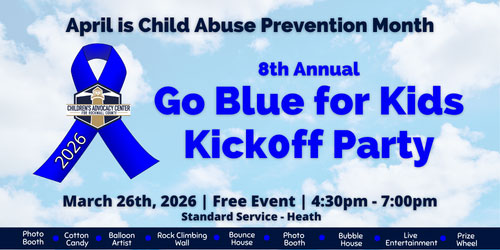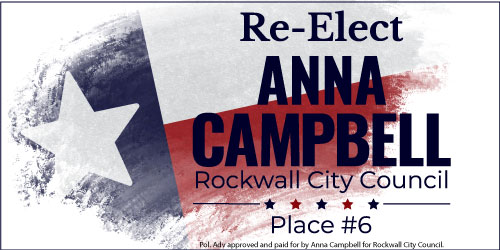
(ROCKWALL, TX – Nov. 2, 2016) Having served as your Mayor and City Councilmember, I’ve seen our City experience significant growth in new residential and commercial construction. That growth brings change that can be both exciting and challenging at the same time. Without a doubt, Rockwall has steadily attracted people to the area because of its unique nature—as a lakeside community with an exceptional school district and small, hometown feel despite the substantial growth.
On the residential side, the City has strict standards that require developers and homebuilders in Rockwall to provide residents with a high-quality home and neighborhood amenities, including open space, park land, trails and other features that enhance the quality of life. As a general rule, new home construction tends to impact the commercial, retail and personal service companies that choose to operate in Rockwall. Additionally, new franchises often follow the growth based on their respective market requirements.
For the most part, the local consumer market and company business strategies play an important role in what types of businesses Rockwall can attract and support. Many other aspects such as zoning, overlay district requirements, land use, building materials, etc. are all contributing factors with regard to what is allowable in certain areas of the City.
I have received many questions as to why Rockwall has certain businesses that locate here and others that do not. The answer, in short, is not really a simple one. As in any city, Rockwall has a planning and zoning process that governs what can and cannot be located in certain areas. Here are the answers to some of the most frequently asked questions about planning and zoning development in Rockwall:
Q: With regard to private property, what powers does the City have over the development of land?
A: The City is charged with protecting the safety, health and general welfare of residents. That’s what drives the majority of the regulations. The City has the right to impose some limitations and conditions on the use of private property, as long as those restrictions do not unreasonably interfere with a property owner’s rights. Generally, these regulations control congestion, pollution, overcrowding, nuisances or other similar undesirable conditions associated with land development.
Examples of some of these restrictions include segmentation of land use, density and dimensional requirements as well as performance standards. By establishing zoning districts, a city can group similar land uses and dictate which land uses should be permitted within certain areas (i.e. industrial land uses can be concentrated in one area, housing in another, retail in another, etc.). This does not prohibit a private property owner from requesting a land use not permitted within a certain zoning district. A zoning change request requires public hearings and notification of adjacent property owners.
Q: What is zoning and why do we have it?
A: Zoning is dividing land by categories and establishing them in certain areas to prevent incompatible land use. For example, few people would want a manufacturing facility adjacent to their home. Zoning seeks to prevent that from happening.
Q: Describe the difference between land use zoning and deed restrictions.
A: Zoning is within the City’s responsibility, and deed restrictions are decided (usually by private contract) between a seller and a buyer.
Q: What is the City Council’s role in the zoning process, and how does it affect private property owners?
A: The City Council—upon recommendation from the Planning and Zoning Commission—is responsible for making a ruling on all zoning related matters within the City of Rockwall. This includes the zoning of physical property, as well as zoning policies and regulations. The zoning of physical property is typically initiated by the property owner for the purpose of developing or conveying a property with certain entitlements. With regard to zoning cases, the City Council has the ability to approve or deny a request. Alternately, the City Council may modify a request to make it more restrictive (i.e. change what is being requested to a more restrictive zoning district). This can affect private property owners by establishing the most appropriate future use for land.
Q: Once a property is zoned or entitled, what is the difference between a by-right land use and a discretionary land use?
A: Once zoning has been established on a property, the Unified Development Code contains a list of land uses permitted within each district. A by-right land use doesn’t require additional approvals (i.e. no public process, no City Council approval). A discretionary land use, typically referred to as a Special or Specific Use Permit (SUP), is a use that is allowed within a particular zoning district, but requires approval by the City Council. Through this process the City Council may approve or deny the request in the same manner they would a request to change the zoning on a property. However, in approving these requests, the City Council has the ability to approve additional operation constraints on the business to protect the health, safety and general welfare of the public.
Q: Does the City control what businesses can come into the City on certain properties (i.e. why would the City allow an auto parts store as opposed to a personal goods store on a particular property)?
A: As stated above, the City has a limited ability to regulate the segmentation of land uses, but is only able to do so under broad categories. For example, the City’s Unified Development Code does not make a distinction between an auto parts store or a personal goods store (i.e. both uses are considered to be a general retail store). As a result, either use would be permitted on any property that allows a general retail store by-right.
Q: Why do developers remove so many trees when developing a property? Why does the City not require the developer to save more trees?
A: The City of Rockwall strongly encourages developers to preserve as many trees as possible when developing a property; however, it is not always possible to preserve every tree when considering a new development. Typically, City staff will require a developer to submit a tree mitigation plan prior to grading a property. Grading is an engineering process designed to account for proper surface drainage and to control erosion through the reshaping and stabilization of the ground. Unfortunately, grading a property around existing vegetation is not always possible.
Through the tree mitigation plan, the developer works with the City to preserve as many trees as possible, and replace trees being removed with new trees elsewhere, to maintain a balance throughout the City.
Q: What are the mitigation requirements for cutting down trees in the City?
A: When a developer removes a protected tree in the City of Rockwall, they are required to mitigate for that tree (or add a new one somewhere else within the City). Typically, a developer has the following options:
1. replacing the tree inch-for-inch on-site [1/2-inch-for-inch for cedar and hackberry trees]
2. replacing the tree by providing the Parks Department with an inch-for-inch replacement of the tree, or
3. paying into the City’s tree fund
Q: What is the City’s Tree Fund and how is the money in this fund used?
A: The City’s Tree Fund is utilized by the Parks Department to plant trees and landscaping on public land (e.g. parks, government buildings, street right-of-ways, etc.) within the City of Rockwall. The money in the fund may only be used for the purpose of planting trees and landscaping, but may also include expenses like labor, equipment and irrigation (i.e. essential expenses in installing and sustaining vegetation).
If you have further questions or comments concerning zoning in the City of Rockwall please contact our Planning and Zoning Department at Rockwall.com. You may also email me directly at jimpruitt@rockwall.com or come by Rockwall City Hall, 385 South Goliad Street, and visit on Mondays from 12 p.m. to 4 p.m. during my open office hours.
Respectfully,
Mayor Jim Pruitt
City of Rockwall
 Your #1 source for positive hometown stories, entertainment and events.
Your #1 source for positive hometown stories, entertainment and events.
Our print edition is delivered free to 18,000+ homes in Rockwall and Heath, TX.
To share your good news and events, email editor@BlueRibbonNews.com.
For advertising inquiries both online and in print, call 214-342-8000 or email advertising@BlueRibbonNews.com.
Download the FREE Official Rockwall Area App for Apple iPhone or Android.







